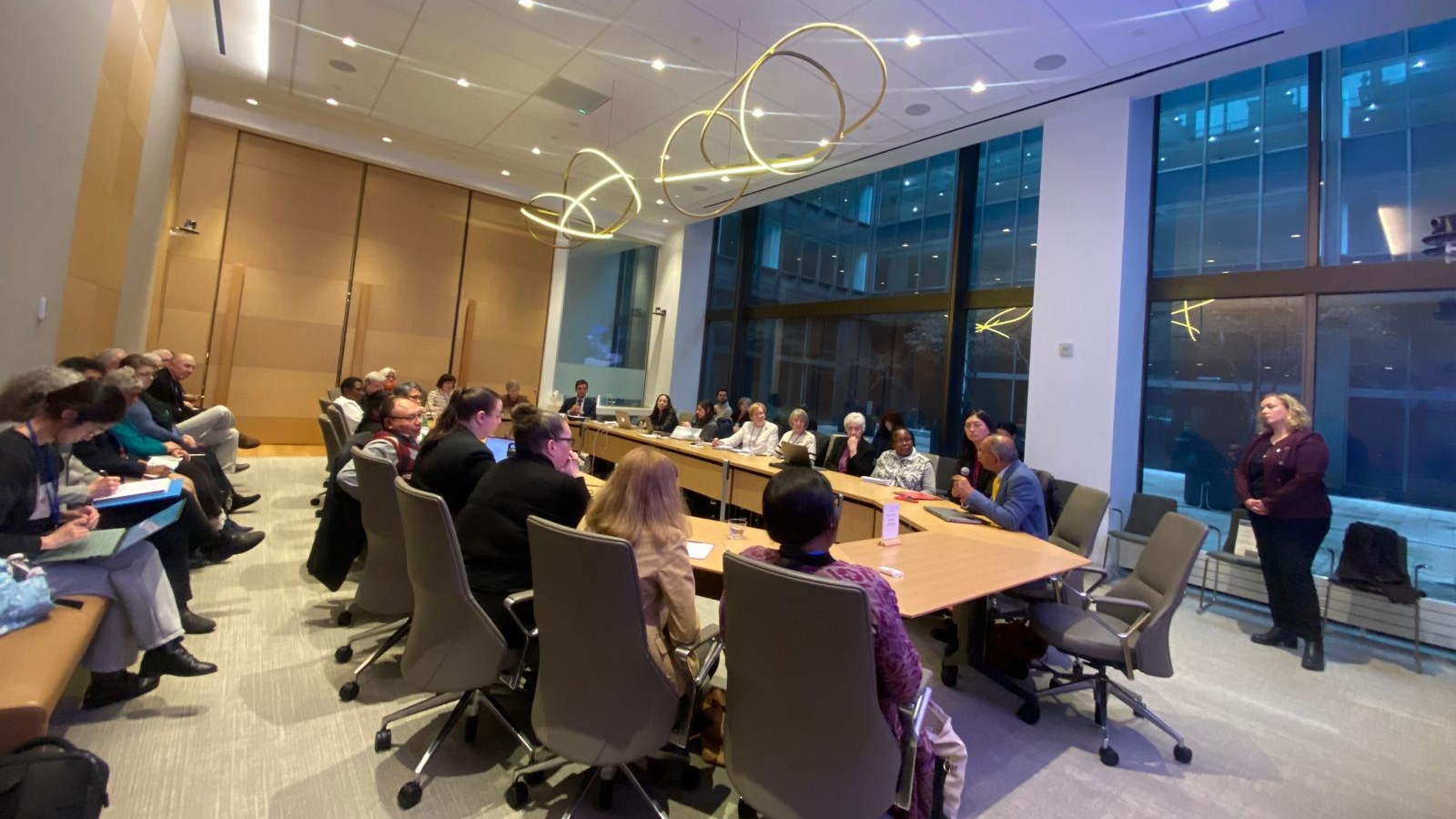
On 13 February, the International Association of Schools of Social Work with the NGO Committee for Social Development hosted the side event, “Building a Collective Future: Grassroots Voices on Emerging Priorities for the Second World Social Summit” at CSocD63. The event focused on the pressing global challenges of social inclusion, climate change, and the roles of different sectors in building an equitable society. The key objective was to explore how social policies can be effectively implemented to address inequality, environmental degradation, and the socio-economic impacts of climate change while ensuring that no one is left behind.
Discussion points
A central theme of the discussion was the tension between competition and cooperation in addressing societal issues. Speakers acknowledged that while competition is a reality in global systems, a cooperative framework can instead help tackle challenges more effectively. They stressed that these issues cannot be addressed in isolation and that such collaborative efforts are essential.
Another key discussion point was the balance between ambition and pragmatism in social policy. The SDGs represent a broad ambition, but effective action requires commitment from both governments and NGOs, with a focus on the practicalities of implementation — what actions will be taken, when, and how.
In relation to climate change and its impact on farmers, the discussion emphasized the crucial role of NGOs. Farmers are particularly vulnerable to environmental changes, and NGOs play a significant role in providing support, access to resources, and promoting sustainable practices.
The event underscored the need for multi-stakeholder collaboration to create inclusive, sustainable social policies that directly address inequality and climate challenges
Speakers
• Jorge Aranda
• Ms. Marta Roig
• Dr. Lynne Healy
• Sue Wilson
• Alwande Moyo, Junior Minister of Environment, Justice Desk Africa Lead Ambassador
Q&A and Responses
Key questions included how Portugal's strategies for social policy could be applied elsewhere, and the roles of NGOs in supporting farmers affected by climate change. Responses emphasized the balance between competition and cooperation and the importance of pragmatic decision-making in achieving the SDGs. The necessity of civil society's involvement in shaping policies was also discussed.
Closing Remarks
Barbara Bozak concluded by reinforcing the need for ongoing collaboration and actionable commitments from all sectors to achieve a more inclusive and sustainable world.
 Welcome to the United Nations
Welcome to the United Nations